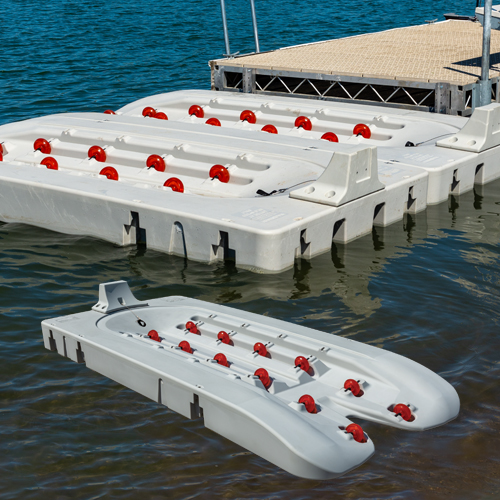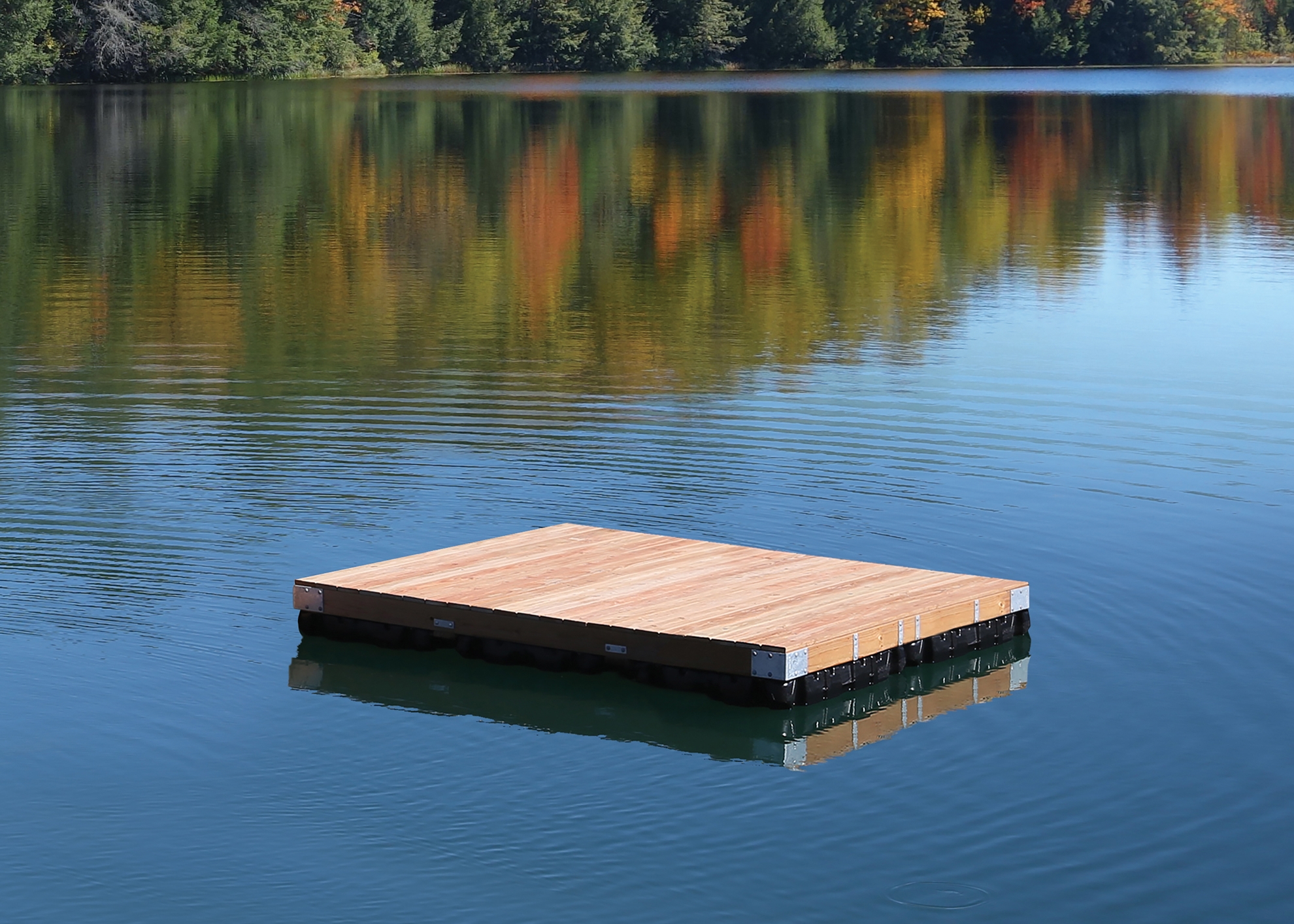Ingenious Floating Docks: The Future of Beachfront Access and Leisure
Ingenious Floating Docks: The Future of Beachfront Access and Leisure
Blog Article
Develop the Perfect Docking Service With Floating Docks
Floating docks existing a versatile option for a range of maritime needs, adjusting flawlessly to fluctuating water degrees and varied vessel kinds. As we check out the vital elements that contribute to the effectiveness of floating docks, a number of essential factors pertaining to security and upkeep will certainly arise, raising questions about how to optimize your docking experience.

Advantages of Floating Docks
Floating docks deal various benefits that make them an optimal option for various maritime applications. Unlike repaired docks, floating docks rise and loss with the tide, making certain consistent ease of access for vessels.
Additionally, floating docks are normally simpler and quicker to mount compared to standard fixed frameworks. Their modular style enables uncomplicated setting up and disassembly, promoting upkeep and relocation when required. This versatility is especially useful for short-term applications or in environments where conditions might transform.
Floating docks likewise often tend to be a lot more eco-friendly, as they lessen disruption to the seabed and surrounding water ecosystems. Their buoyant nature minimizes the risk of damage to marine life, advertising a much healthier atmosphere. Furthermore, these docks can be personalized to fit different vessel dimensions, making sure that they fulfill certain operational needs - floating dock services.
Inevitably, the combination of adaptability, ease of installation, and ecological considerations makes floating docks a highly effective solution for a wide variety of maritime demands.
Picking the Right Products
Choosing the suitable products for floating docks is crucial to make certain stability, durability, and long life. The option of products directly affects the dock's performance in various environmental conditions, including exposure to water, sunshine, and prospective wear from aquatic web traffic.
Usual materials utilized for floating docks consist of light weight aluminum, timber, and high-density polyethylene (HDPE) Aluminum is light-weight, corrosion-resistant, and needs minimal maintenance, making it a superb option for durability. Its initial cost can be greater contrasted to other products.
Timber, while visually attractive and offering a conventional look, can be vulnerable to rot and insect damages otherwise correctly dealt with. Using pressure-treated timber or normally sturdy varieties like cedar or redwood can mitigate these problems.
HDPE is a prominent choice as a result of its resistance to UV rays and chemicals, in addition to being eco-friendly. floating dock builder. It is light-weight and available in various colors, permitting personalization
Eventually, the best material choice will rely on specific demands, including spending plan, preferred aesthetics, and environmental factors to consider. Mindful assessment of these aspects will certainly lead to a resistant and successful floating dock option.
Style Factors To Consider for Security
When designing floating docks, guaranteeing security is a fundamental aspect that can dramatically affect their capability and safety and security. Security in floating dock design is influenced by numerous variables, consisting of buoyancy, weight distribution, and the plan of parts. An optimal buoyancy system must make use of materials that give adequate lift while lessening weight. This equilibrium guarantees that the dock continues to be above water, also under differing loads.
Weight circulation is essential; evenly dispersing tons throughout the dock protects against turning and improves security. This can be accomplished with tactical positioning of docking equipment, such as fenders and cleats, as well as correct spacing of floats. Additionally, the measurements of the dock must be thoughtfully intended. Bigger designs can offer increased stability, particularly in harsh water conditions, while longer docks might need added assistances to avoid sagging.
Another key factor to consider is the ecological impact, consisting of wave activity and wind. Incorporating functions such as sidewalls or skirting can aid alleviate the effects of environmental forces, preserving stability in negative conditions. Eventually, a mix of thoughtful layout, product option, and understanding of environmental elements will produce a floating dock that satisfies both security and security needs.
Installment Tips and Techniques

Next, secure the essential authorizations and stick to regional guidelines, which blog here may dictate setup techniques and ecological factors to consider. Engage a certified service provider experienced in floating dock installations if called for. Usage premium products developed for aquatic atmospheres to improve sturdiness and long life.
When positioning the dock, align it alongside the coastline to facilitate simple gain access to. Make certain that the anchoring system is durable, employing concrete blocks or helical anchors to stabilize the dock against wind and wave action. It's critical to make up seasonal water level changes, consisting of potential ice movement in colder environments.
During the installation, ascertain the dock's floatation and security prior to finalizing the anchoring. Frequently examine the setup for any type of indications of wear or damage. By complying with these methods and pointers, you can accomplish a safe and secure, practical, and aesthetically pleasing floating dock installment that meets your demands.
Upkeep and Care Standards
Keeping and caring for floating docks is important to prolonging their life-span and guaranteeing safe use. Normal examinations must be conducted to identify any kind of signs of wear, damage, or aquatic growth. Try to find splits, loosened installations, or tarnished locations on the dock's surface area, as these problems can endanger structural honesty.
Cleaning is crucial. Make use of a stress washing machine to remove algae, barnacles, and debris, which can gather in time. For persistent growth, consider eco friendly cleaning representatives that will not damage marine life.
In addition, inspect the mooring lines and anchors regularly to ensure they are cost-free and additional resources safe from rust. Change any type of torn or harmed lines promptly to maintain security.
During extreme weather, such as tornados or freezing conditions, take precautionary procedures. Protect the dock with extra mooring lines and, if viable, remove any type of detachable components to stop damage.
Conclusion
To conclude, the execution of floating docks offers a reliable and flexible docking remedy appropriate for different maritime applications. Their versatility to varying water levels, incorporated with a modular layout, enables simple customization and moving. Picking proper products improves both durability and visual allure, while careful factor to consider of security makes sure security and longevity. With appropriate installation and routine upkeep, floating docks can give efficient and dependable docking experiences for a large range of vessels.
As we explore the important components that contribute to the efficiency of floating docks, a number of key elements regarding security and upkeep will certainly emerge, increasing concerns concerning how to optimize your docking experience. Unlike fixed docks, floating docks increase and fall with the tide, guaranteeing consistent accessibility for vessels.When developing floating docks, ensuring security is a fundamental aspect that can substantially affect their functionality and safety and security. Security in floating dock style is influenced by different elements, including buoyancy, weight circulation, and the arrangement of elements. Ultimately, a mix of thoughtful design, product option, and understanding of environmental aspects will yield a drifting dock that satisfies both security and security needs.
Report this page